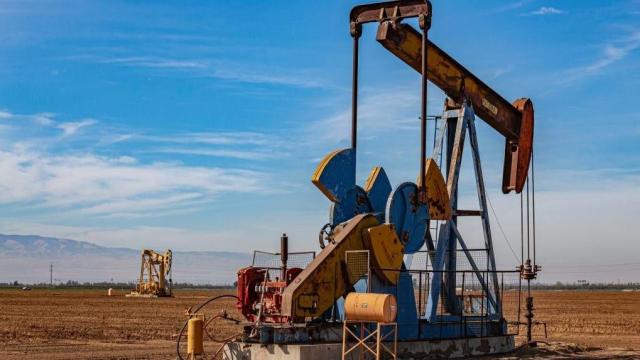Environmental group Friends of the Earth filed a lawsuit against the White House this week after it did not respond to request for information about why the Department of Interior’s 2021 leasing program report downplayed climate urgency. The report failed to mention the environmental impacts of leasing public lands for the purpose of oil and gas drilling. It also didn’t say how or whether the government would factor climate change into its consideration of future lease applications.
Friends of the Earth submitted a Freedom of Information Act (FOIA) request earlier this year, asking for records that could explain why the Department of the Interior’s report failed to connect climate change to oil and gas projects. According to the group, the Council on Environmental Quality, an executive office in the White House, has repeatedly ignored the FOIA request.
The Biden administration has walked back on its promise to stop oil and gas leasing on public lands, even though multiple reports have warned that we’re running out of time to avert massive environmental disaster.
I spoke to Hallie Templeton, Friends of the Earth’s legal director, about the lawsuit. This interview has been edited and condensed for clarity.
Angely Mercado, Earther: The original FOIA request to the Council on Environmental Quality was filed in January. What was supposed to happen after that?
Hallie Templeton, Friends of the Earth: Friends of the Earth files a lot of FOIA requests. This is our bread and butter. This is how we find out what the government is up to. In our experience, when you file a request with the federal government, somebody assigns it a FOIA request number, a tracking number. And pretty quickly, they respond to you and say, “We’ve received your FOIA requests. We’re acknowledging that request. Here’s a tracking number we’ve assigned to that request.” They usually send us status updates or ask if there’s any follow-up question. That usually happens far sooner than 20 days.
Earther: I’m guessing that wasn’t the case this time.
Templeton: We submitted a FOIA request on January 11 of this year, and there were crickets. There was no confirmation, there was no tracking number, there was no acknowledgement, there was no response.
Earther: Why take legal action now?
Templeton: FOIA provides the option to litigate in court if the agency blows the deadline, so that’s an automatic invitation to take the agency to court if they do not operate within the mandated deadline. We tried to do this diplomatically, without going to court first. Maybe this lawsuit will get their attention and they will respond to us.
Earther: What are you hoping to find out?
Templeton: Our target is to see if — and if so, how much — influence the big oil industry and oil producing states had on this report. This report fell short of what Biden had promised. The report was released on Black Friday, the day after Thanksgiving. What’s the influence there? Why did they do that? Is there any record there that has a conversation recorded on email, potentially on call notes?
[Maybe when] the Department of Interior drafted this report, and it went over to the White House for a review, and then something happened and then when it left the White House after review, a lot of stuff was stripped out of it, including climate change discussion. We want to see what happened there and why.
Earther: What was your reaction when you first read the November leasing report?
Templeton: Climate is only mentioned once in that report. If you look at the executive order of January 2021, climate is in the title of the executive order, and that is what mandated that report. And yet climate change isn’t mentioned at all? The report is only 18 pages long. What the executive order mandated was a programmatic review of the federal oil and gas leasing program and their report to follow. How can you fit a programmatic review of all of the impacts the federal leasing program has, how can you shoehorn that into an 18-page report?
Earther: Once you get ahold of the records, what next?
Templeton: We certainly promise to be transparent, which is more than the government is doing. When we get those documents, we will look at them, we will digest them… to help develop materials to disseminate that to the general public and let them know what the government is up to and what it means for climate. What it means for the environment. And it remains to be seen what the records will show.
There’s a lot of paths to a “choose your own adventure.” But one thing I can promise is that we will be transparent… and show the public what’s been going on behind those closed doors.
